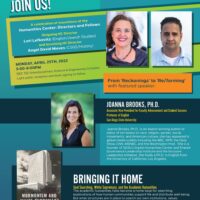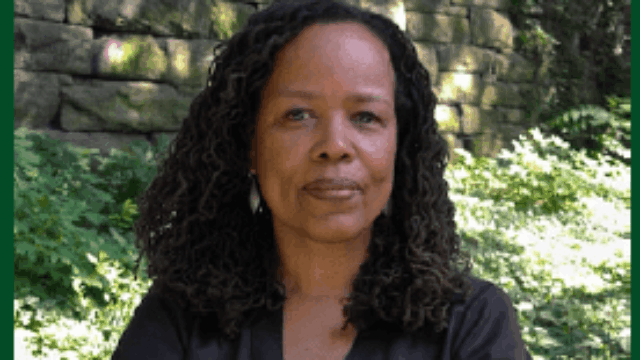
SPEAKER: LYNNE TIRRELL, UNIVERSITY OF CONNECTICUT
February 3, 2021 | 5:00 p.m. |Zoom
The Composite Bodies Series is a partnership between the Northeastern University Humanities Center and the Mahindra Humanities Center at Harvard. It is convened by Patricia Williams (University Distinguished Professor of Law and Humanities, Northeastern University) and Caroline Light (Senior Lecture on Studies of Women, Gender, and Sexuality, Harvard University).
What does it matter if our speech practices abandon truth, license violence, instill fear? Toxic speech has the power not only to shape the social body—our very practices of being and interacting—but also to injure individual bodies. When a political or cult leader, for example, licenses his followers to commit violent crimes against those deemed Other, we see an overt case of speech engendering physical harm. More insidious and ubiquitous are the everyday speech practices that generate harms ranging from physical violence to social exclusion and damaged health. Using tools from both epidemiology and philosophy of language, we can better understand how speech practices can create detrimental social climates and harm individual health.
About the Speakers
Lynne Tirrell is a Professor of Philosophy at the University of Connecticut. Her research addresses the ways in which linguistic practices influence or shape social justice or facilitate injustice, and how these practices enhance or violate human rights. Her forthcoming book, Toxic Speech (under contract with Oxford University Press), develops an epidemiology of discursive toxicity using theories from philosophy of language and social epidemiology. This grows from recent work on the role of language in genocidal development, execution and in its aftermath.
Caroline Light is Senior Lecturer on Studies of Women, Gender, and Sexuality at Harvard University
Patricia Williams is University Distinguished Professor of Law and Humanities at Northeastern University
About the Series
In a moment where our collective health depends on technological innovation – including “contact tracing” through the collection and storage of cell phone data – visual, biometric, and other forms surveillance collect us as pinpoints of data. Composite Bodies takes up questions of technology, surveillance, embodiment, and power from an intersectional feminist lens. Through critical engagements with law, philosophy, art, history, bioethics, criminology, and advocacy, this series will address how the machine measurement and tracking of bodies are reconceptualizing notions of privacy while complicating the boundaries of the body as an integrated whole, reproducing and reinforcing biases based on race, class, gender, and other historically disabling taxonomies.
Additional information can be found here.




